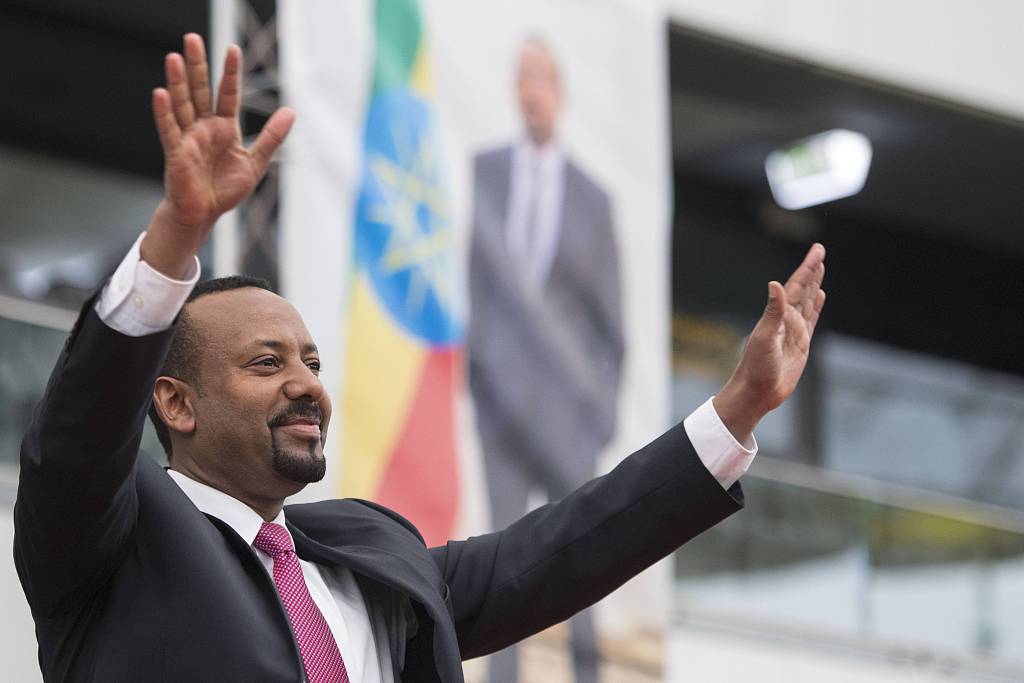Nobel Peace prize to Ethiopian PM just the first step
- By Sajjad Malik
 0 Comment(s)
0 Comment(s) Print
Print E-mail China.org.cn, October 15, 2019
E-mail China.org.cn, October 15, 2019

The 2019 Nobel Peace Prize has gone to the Prime Minister of Ethiopia Abiy Ahmed Ali, honored for the domestic reforms and peacemaking efforts with neighboring Eritrea.
The award has been given to someone who has actually contributed to peace. Abiy has not only transformed an uneasy stalemate with Eritrea but also spearheaded efforts to normalize many regional tensions.
Since 1901, the Nobel Peace Prize had been awarded 100 times to 134 Nobel Laureates, including 107 individuals and 27 organizations.
Abiy's choice could not have been easy. Though, he initiated domestic changes and led the peace efforts. It is still early to judge the outcome of his struggle. We also cannot say how far he will go, given domestic pressures.
However, since coming to power in 2018, Abiy has given new hope to his nation of 108 million people. His achievement can be divided into two categories: those related to the domestic arena and those linked with the foreign policy domain.
He lifted the state of emergency and set free thousands of political prisoners, thus creating much-needed political space for opponents. Reportedly, he even interacted with the groups designated previously as terrorists.
He also gave proper representation to women in the cabinet as part of an effort to show sensitivity towards the issue of gender balance.
Abiy's key success lies in the field of foreign relations. He took the bold step of accepting the terms of the Algiers Peace Agreement and the Ethiopia-Eritrea Boundary Commission. It was not easy, as the terms of the peace involved the handing over of the town of Badme to the former enemy, Eritrea.
This was at the center of the 1998-2000 war between the two. The huge concession produced immediate results and the two countries signed a peace deal. Thereafter, they restored diplomatic ties, followed by rebuilding of air and land links and reunification of families long divided by war.
Abiy's actions are not limited to initiating changes at home and mending fences with Eritrea; he has triggered a chain-reaction of peace-building efforts by mediating between Eritrea and Djibouti, Eritrea and Somalia and Somalia and Kenya.
He has prodded various groups in South Sudan to seek peace. His mediatory efforts also reached Khartoum, where he helped factor a deal between the Transitional Military Council and the opposition groups to end tension in Sudan's post-Omar al-Bashir era.
Abiy has pushed forward a simple idea that progress and development is not possible without peace and stability. The concept has two prongs: peace within and beyond borders.
Like the late South African leader Nelson Mandela, Abiy talks about forgiveness, unity and understanding. He even established a cabinet-level ministry mandated to build peace and national consensus. This also oversees federal law enforcement bodies, including the country's security and intelligence agencies.
This, however, is just the beginning of a long and arduous journey. The challenges are immense. Abiy has to heal Ethiopian divisions and create consensus before he can claim success. However, he knows the hurdles he faces and is working on national reconciliation and political transformation.
Some of the problem faced by Ethiopia are linked with the volatile region called as the Horn of Africa. Abiy should work with other leaders to raise the entire region out of instability and poverty. Quick changes in the system of governance, economic revival and regional cooperation are needed.
The Nobel Peace Prize for Abiy has come at an appropriate time, as it will strengthen his position as a national and regional leader. He also enjoys international backing and confidence and now can initiate big time changes.
Sajjad Malik is a columnist with China.org.cn. For more information please visit:
http://m.formacion-profesional-a-distancia.com/opinion/SajjadMalik.htm
Opinion articles reflect the views of their authors, not necessarily those of China.org.cn.
If you would like to contribute, please contact us at opinion@china.org.cn.





